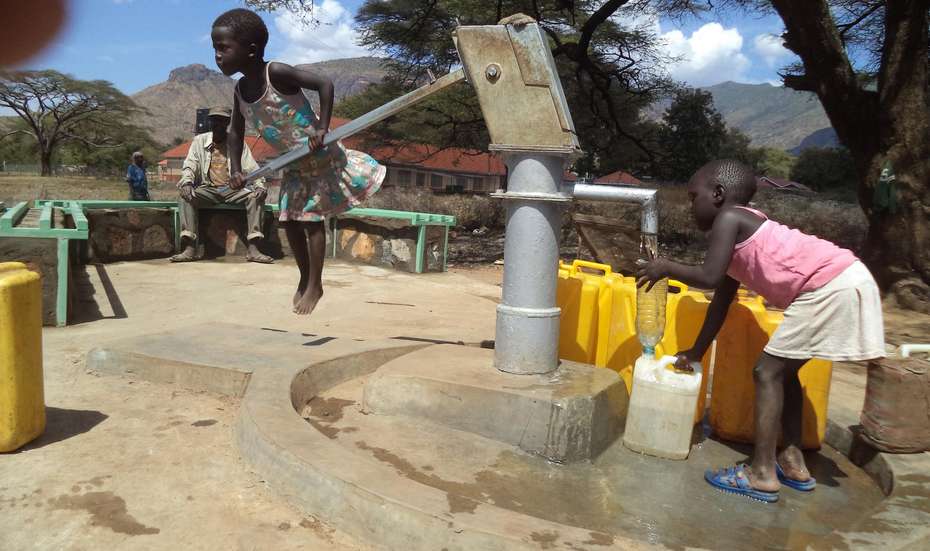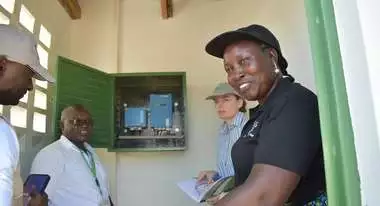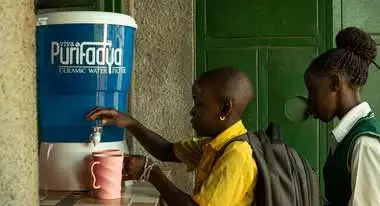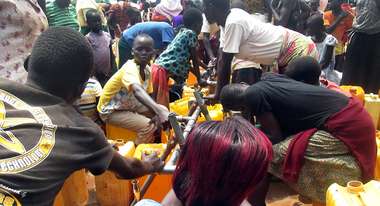Clean Water for People in Karamoja
Many people in Uganda do not have clean water. Welthungerhilfe helps to establish the access to clean drinking water and basic hygiene.
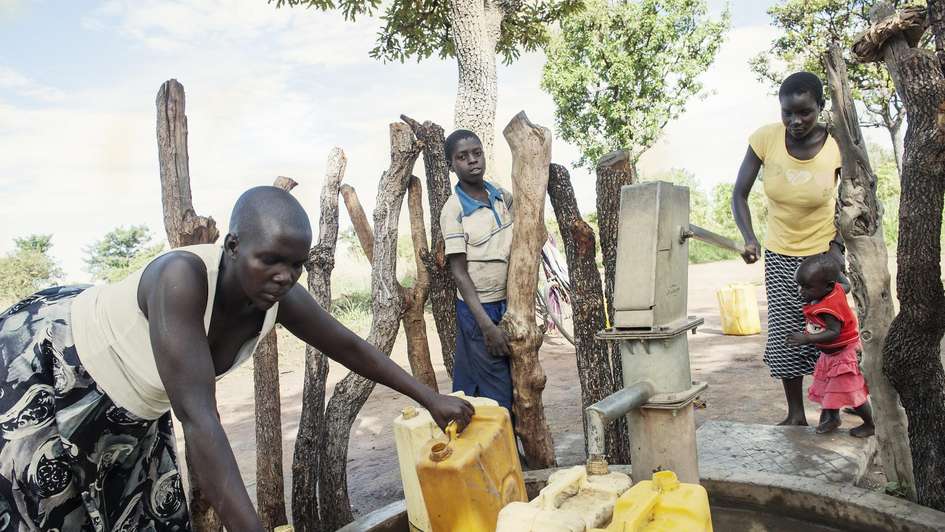
Water is a human right. However, many millions of people can only dream of this right. In order to make it reality, Welthungerhilfe is actively promoting and providing access to clean drinking water and sanitation facilities in many countries, including the Karamoja region in the East African country of Uganda.
Small Towns in Karamoja: Clean Water and Toilets are Scarce
Uganda’s urban population is growing, with some estimates projecting an overall increase of 34% by 2050. Small towns are expanding particularly quickly. Hunger and poverty, caused by drought and loss of livestock, are driving rural residents to nearby centres, where they hope to find work. Since the communities cannot keep up with the rapidly-sprouting informal settlements, however, these are becoming slums. They lack sanitation facilities and a sufficient water supply. The consequences: Children in particular become sick; they live and play in dirt and mud, suffering from the water shortages and the illegal, unregulated garbage dumps. In the city of Moroto, it is very difficult to get clean water:
-
Most of the people draw their water from drilled wells with hand pumps. Since the ground under the wells is often poorly secured, rainwater contaminated by refuse and faeces enters the groundwater.
-
Only five percent of households have their own latrine. The few public latrines are heavily overused. Many people have no choice but to relieve themselves outside, creating a great health risk.
-
The situation in the schools is also problematic: Many children from rural areas attend boarding schools in the cities, in which they often have to sleep in the classrooms. There are far too few toilets: Often, more than 100 children have to share a latrine. There is also a lack of washrooms and clean drinking water.
In Moroto and in Namalu, Welthungerhilfe is attacking the sanitation problem with WASH projects and by improving the water supply, sanitation facilities and hygienic conditions.
How Welthungerhilfe Supports People in Uganda
- Latrines, washrooms and rainwater collection tanks are being built in schools and health centres.
- Welthungerhilfe is supporting well committees, which are responsible for maintaining the wells. People using the wells pay a small fee to their local committee. The collected funds are then used as necessary for repairs and replacement parts.
- Boreholes are rehabilitated and re-employed as water sources in strategic locations throughout the cities.
- The expansion and operation of plumbing systems with taps connecting to the municipal drinking water supply are being supported.
- In addition, public and family latrines are being built, especially for rent.
- Unemployed youths are being trained to build latrines, providing them the opportunity to earn some money.
Residents of these regions are thus provided with access to clean water and hygiene facilities, improving their health in the long run. The projects are supporting children in particular: Healthier all around, they can attend school more regularly and learn, benefiting the entire population in the long term.




